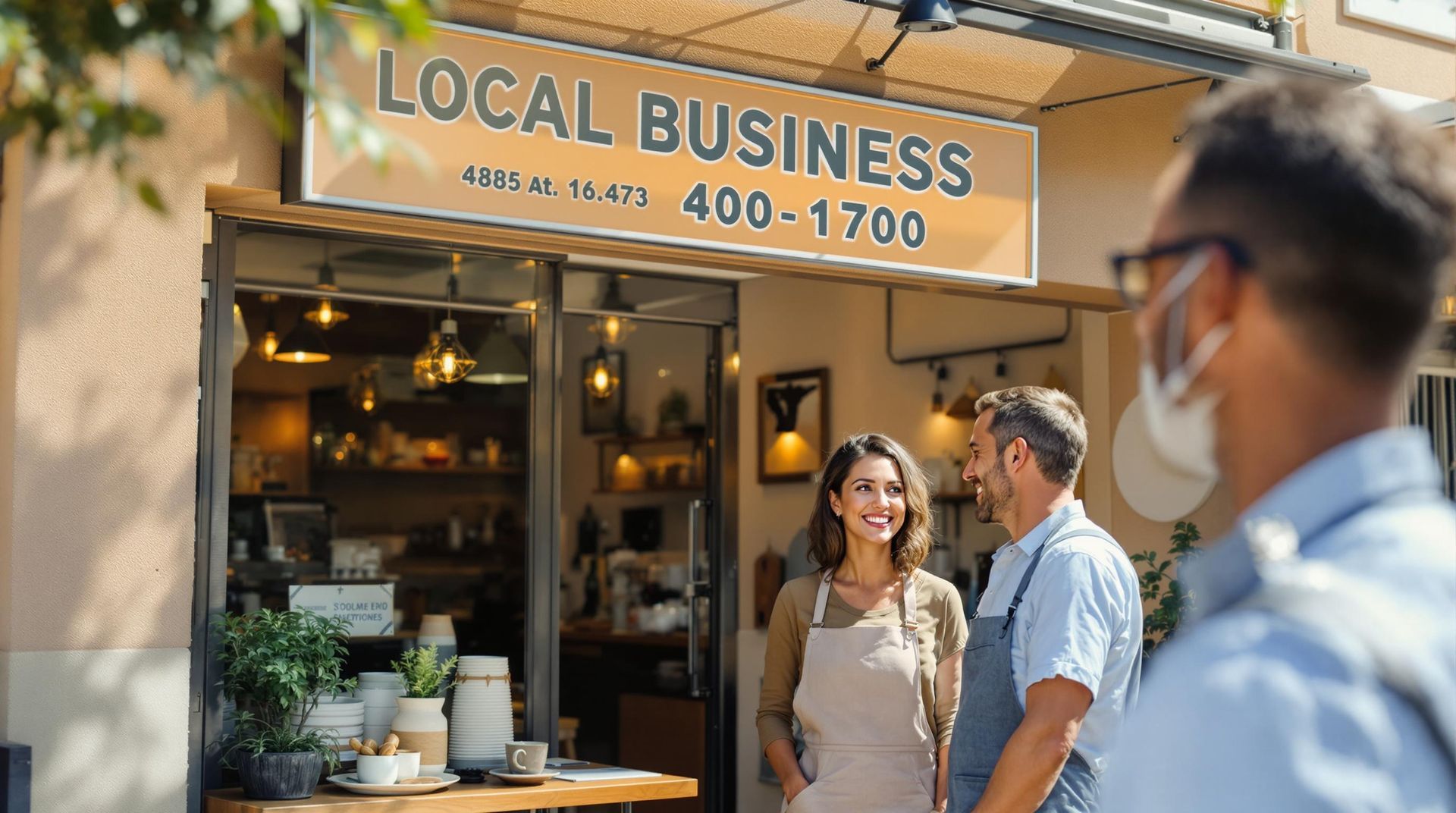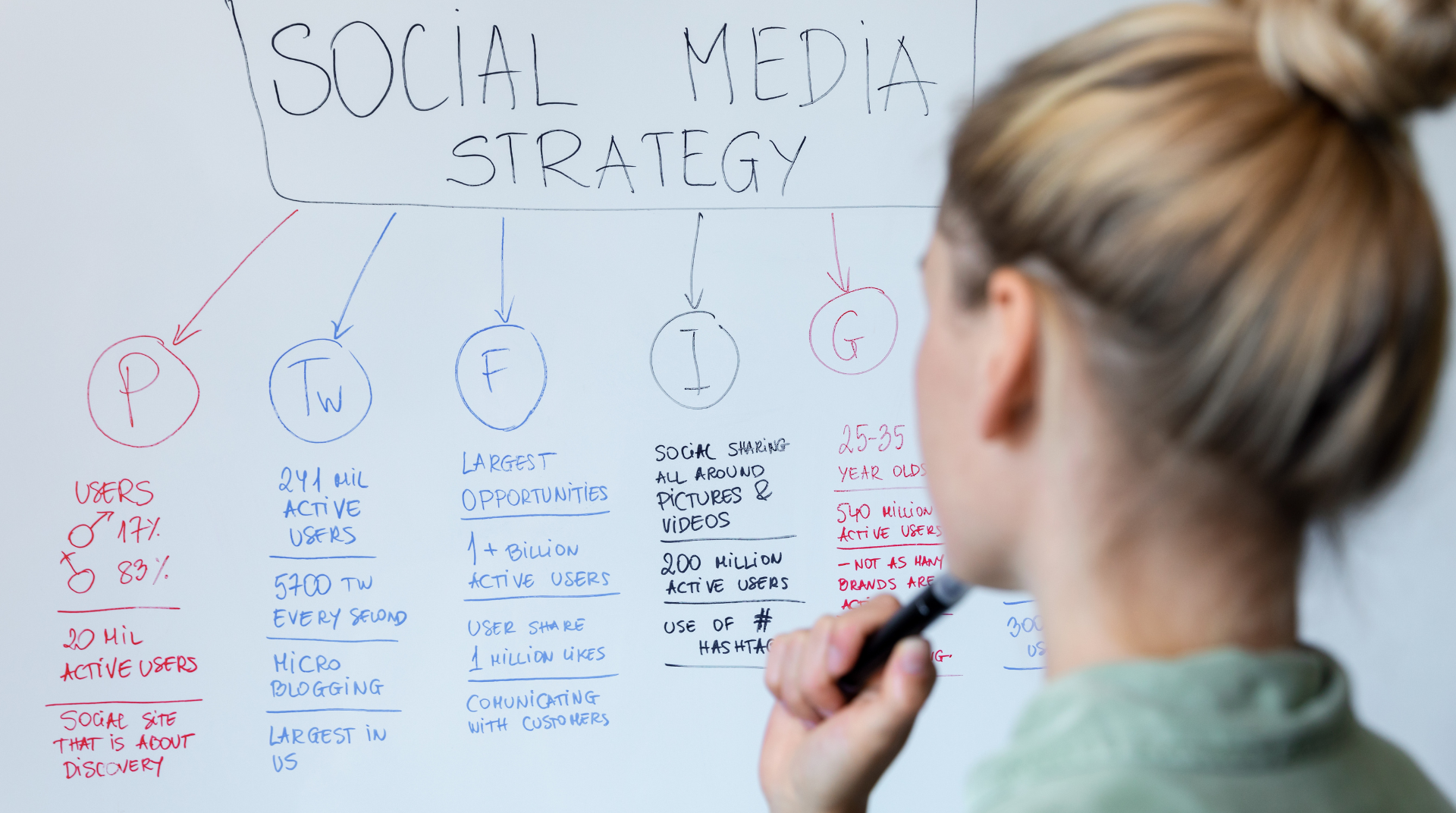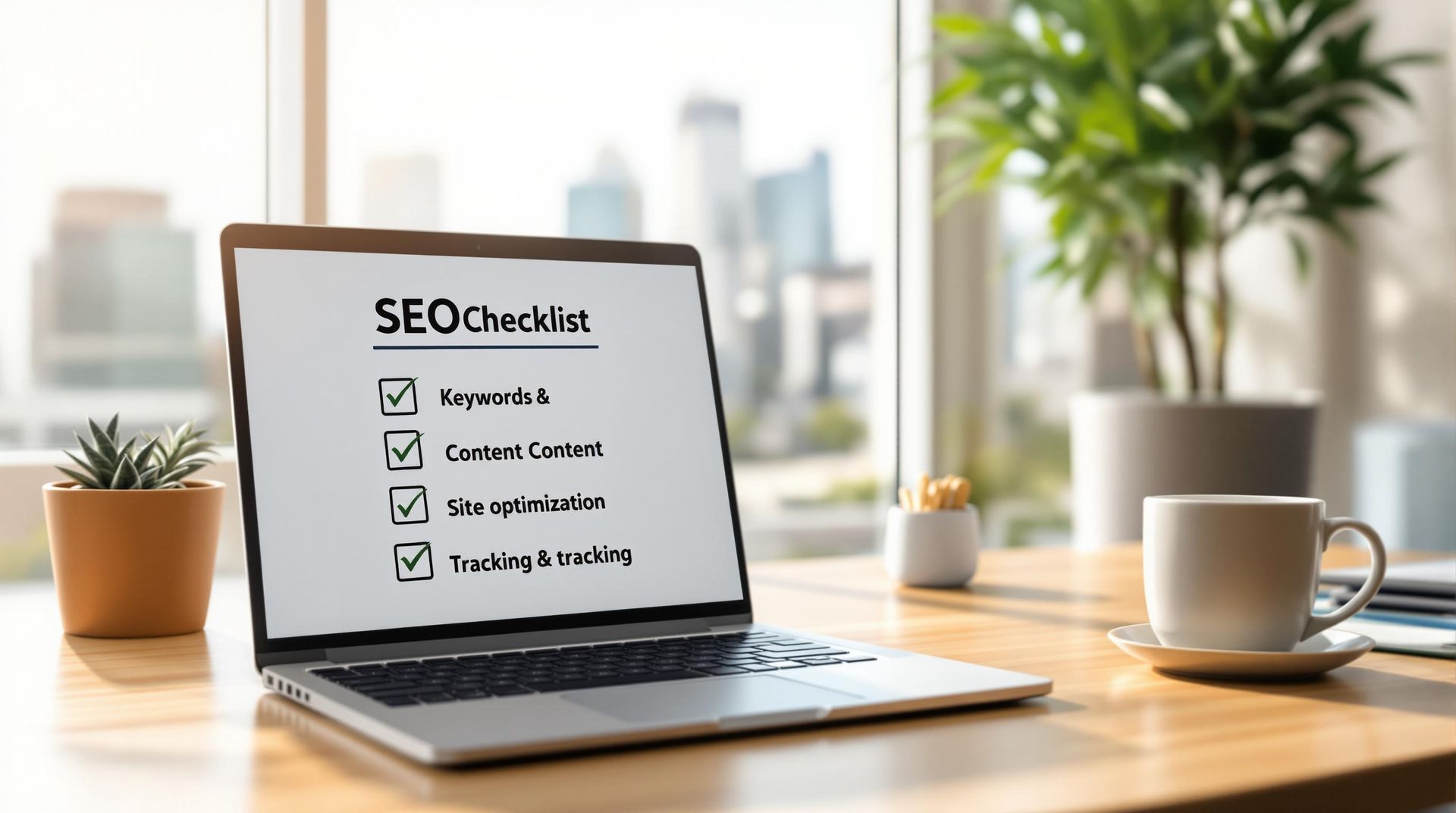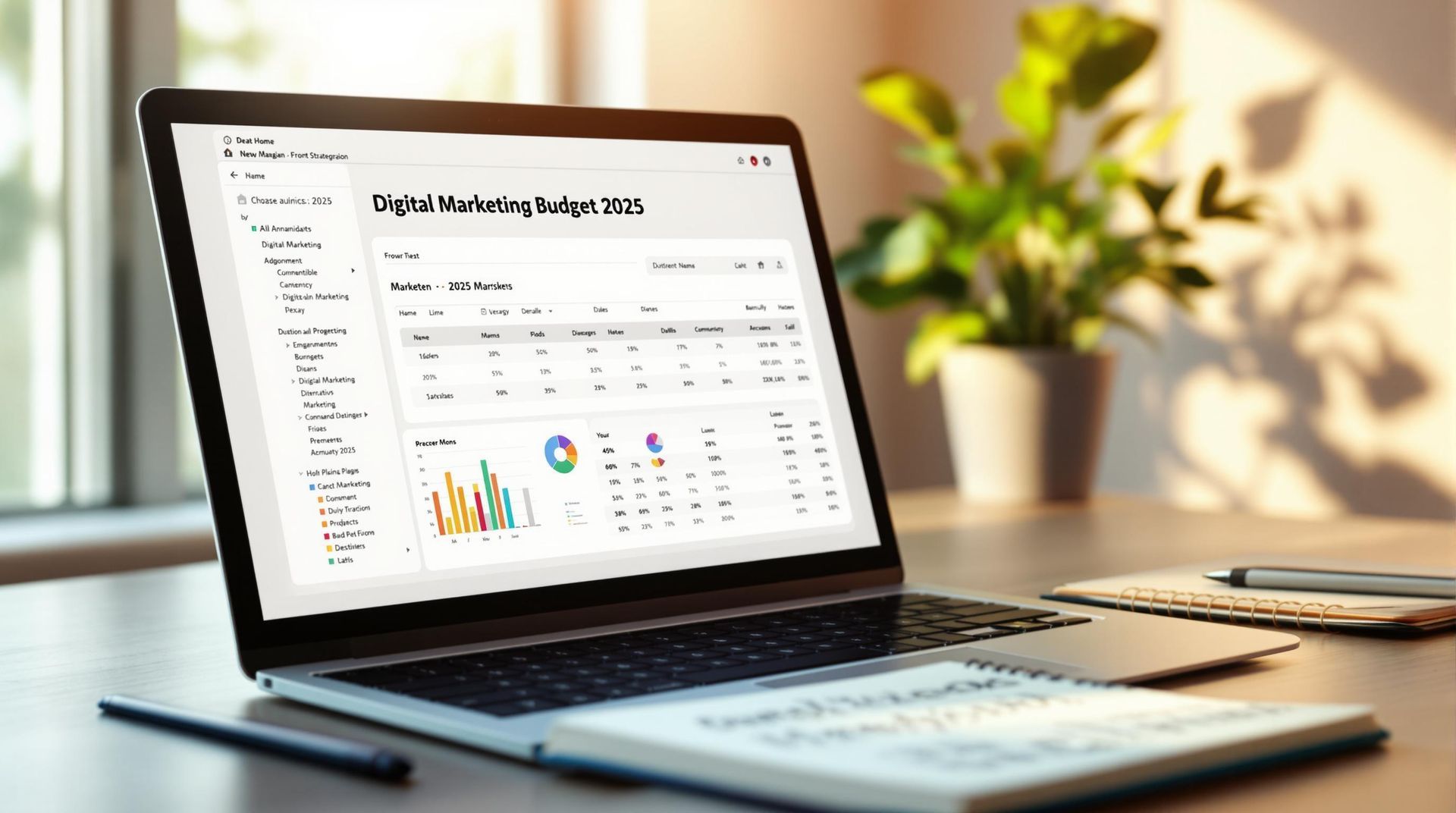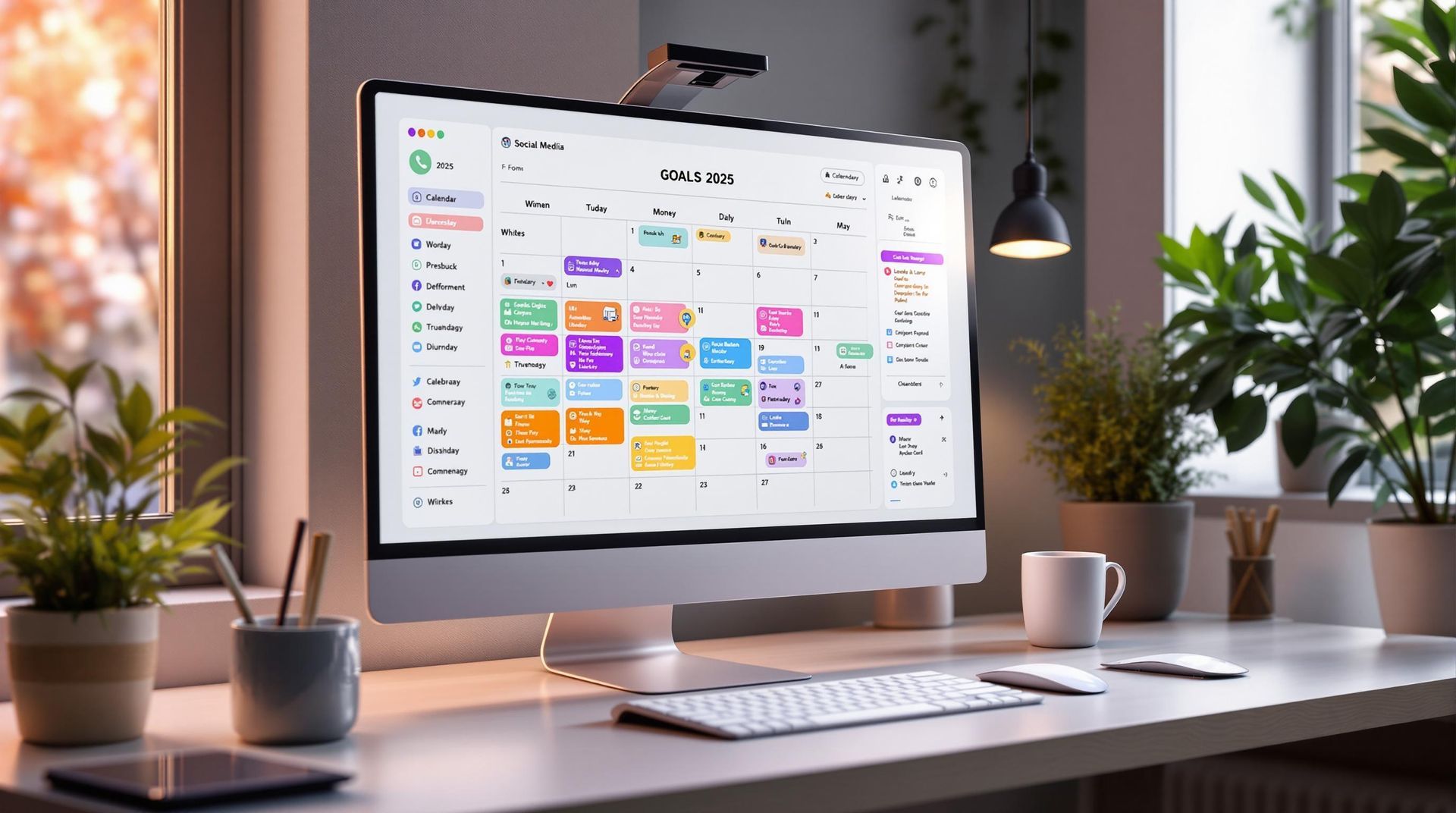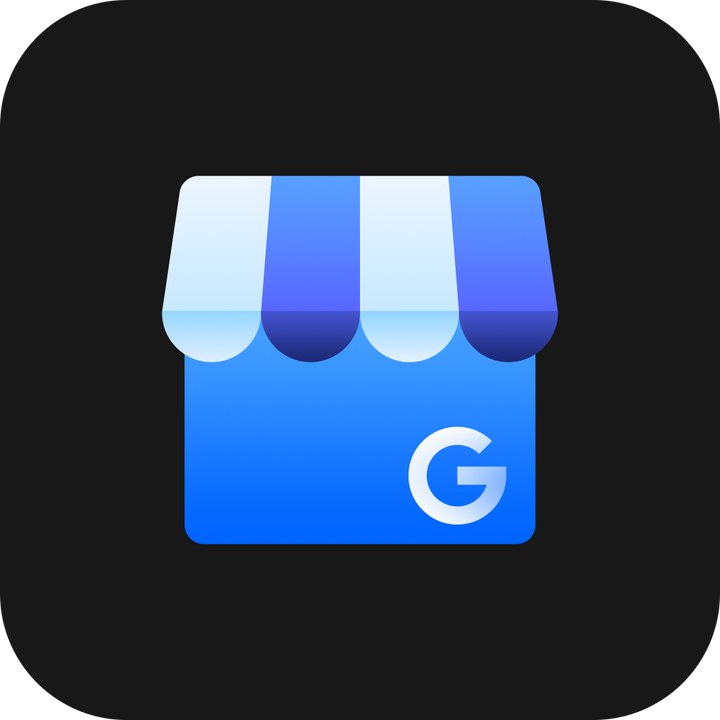AWHITNEY DIGITAL MARKETING
Google Ads vs Facebook Ads Which Platform Drives Better ROI
November 14, 2024
Google Ads vs Facebook Ads: Which Platform Drives Better ROI?
Looking to boost your digital marketing? Here's what you need to know about Google Ads and Facebook Ads:
- Google Ads: Best for catching people ready to buy
- Facebook Ads: Ideal for brand awareness and targeting specific groups
Quick comparison:
| FEATURE | GOOGLE ADS | FACEBOOK ADS |
|---|---|---|
| Focus | Search Intenet | Interests & Behaviors |
| Avg. Cost Per Click | $4.22 | $0.77 |
| Best For | Immediate Sales | Brand Building |
| Audience Targeting | Keywords, Location | Demographics, Interests |
Key takeaway: Your choice depends on your goals, audience, and budget. Many businesses use both platforms for best results.
Want to know which is right for you? Let's dive in.
Related video from YouTube
Main Uses for Each Platform
Google Ads is all about catching people who are ready to buy. When someone searches for "best coffee roasters", they're probably looking to make a purchase. That's where Google Ads shines.
Facebook Ads, on the other hand, is great for getting your brand out there. It's perfect for introducing your product to people who might not even know they want it yet. Think of it as planting seeds for future sales.
Here's a quick comparison:
| PLATFORM | PRIMARY FOCUS | USER INTENT | AD TYPES |
|---|---|---|---|
| Google Ads | Search-Based, immediate needs | High purchase Intent | Text, Image, Video, Shopping |
| Facebook Ads | Interset-based discovery | Lower purchase Intent | Image, Video, Carousel stories |
Who Uses Each Platform
Google Ads works best for businesses with products or services that people actively search for. It's great for:
- Local businesses (like plumbers or restaurants)
- Online stores with specific products
- B2B companies offering business solutions
For example, Verve Coffee Roasters uses Google search ads with multiple links, sending users to different pages based on what kind of coffee they're into.
Facebook Ads is a good fit for businesses that:
- Have products that look good in pictures or videos
- Want to get their name out there
- Want to target specific groups of people
Rothy's, a shoe company, uses Facebook Ads with videos to build excitement for new products, tapping into their existing social media fans.
Many successful businesses use both platforms. As WordStream puts it:
"Although the two platforms are often positioned as competitors, nothing could be further from the truth in a practical sense."
The key is knowing how each platform can help your specific business goals.
Google Ads uses a pay-per-click (PPC) model. You only pay when someone clicks on your ad. It focuses on keywords that show a user is ready to buy or learn more.
Facebook Ads offers PPC too, but can also charge based on how many people see your ad. This platform is great at targeting based on user info, interests, and behaviors within the social network.
Here's something to think about: Google handles over 99,000 searches every second, while Facebook has 1.59 billion daily active users. Both reach a ton of people, but in very different ways.
Stu Edwards from Growth Minded Marketing explains the big difference:
"Google Ads (particularly Search and Shopping ads) typically show to users that are actively searching for something. This is known as 'permission marketing'."
But for Facebook:
"Facebook Ads typically interrupt users while browsing social media. This is known as 'interruption marketing'."
Understanding this difference is key to creating effective ad strategies on each platform. Google Ads helps you find new customers who are actively looking for solutions, while Facebook Ads help potential customers discover your brand, even if they weren't initially searching for it.
Costs and Returns
Let's talk money. How much do Google Ads and Facebook Ads cost? And what can you expect in return? Let's break it down.
Pricing: Google vs Facebook
Both platforms use auctions, but their pricing is different:
Google Ads:
- Pay-per-click (PPC)
- Average cost? $1-$2 per click on Search Network
- But it varies. Education? $9.95 per click. Electronics? Just $0.68
Facebook Ads:
- PPC or pay-per-impression
- Way cheaper: $0.30-$0.65 per click on average
- Daily minimums: $1 for impressions, $5 for video views
Here's the kicker: You might pay $8 per click on Google in a competitive field. On Facebook? Maybe $0.70. But cheaper doesn't always mean better results.
Returns: It's Complicated
Returns vary by industry. Here's a quick look:
| METRIC | GOOGLE ADS | FACEBOOK ADS | |
|---|---|---|---|
| Average ROAS | Not Given | 2.98 | |
| Average CPA | $48.96 | $37 | |
| Average Conversion Rate | 3.75% | 9.21% | |
For Facebook, some industries crush it:
- Automotive Parts: 9.60 ROAS
- Travel Services: 5.49 ROAS
- Fashion: 3.65 ROAS
- B2B SaaS: 2.03 ROAS
- Healthcare: 1.49 ROAS
But hold up. Higher ROAS doesn't always mean better performance. Healthcare's lower ROAS? Might be due to higher customer lifetime value.
"Too often, marketers get caught up in conversion rate, but a higher conversion rate doesn't guarantee efficiency."
Let's crunch some numbers:
1. Google Ads:
1,000 clicks at $8 each = $8,000 spent 80 conversions (8% rate) = $100 per conversion
2. Facebook Ads:
1,000 clicks at $0.70 each = $700 spent 30 conversions (3% rate) = $23.33 per conversion
See that? Facebook's lower conversion rate still wins on cost. You could get 300 conversions on Facebook for $7,000 - that's $1,000 less than Google's 80 conversions.
But remember: These are averages. Your results will vary based on your business, audience, and ad quality. Test both platforms, watch your numbers, and tweak as you go.
Choosing between Google and Facebook? Think about your goals, audience, and product. Google might work better for high-intent searches. Facebook could be your go-to for brand awareness and targeting specific groups.
Finding Your Audience
Knowing where to find your audience is key in digital advertising. Google Ads and Facebook Ads both offer tools to help you reach the right people, but they do it differently. Let's look at how each platform helps you connect with potential customers.
Google Ads Audience Tools
Google Ads is great for reaching people actively searching for products or services like yours. It's all about catching people at the right moment.
Keyword Targeting: This is the core of Google Ads. You pick keywords related to your business, and your ads show up when people search for those terms. A local bakery might use "fresh bread near me" or "custom birthday cakes."
Location Targeting: You can show ads to people in specific areas. This works well for local businesses or those with physical stores.
Demographic Targeting: You can narrow down your audience based on age, gender, parental status, and income.
Audience Segments: Google offers pre-made audience categories:
- In-market audiences (ready to buy)
- Affinity audiences (interested in certain topics)
- Life events (like getting married or moving)
Remarketing: This lets you show ads to people who've already interacted with your website or app.
Ginny Marvin, Google's Ads Product Liaison, says: "Google's audience segments, including detailed demographics and life event targeting, allow advertisers to reach users at critical moments in their lives when they're most likely to need certain products or services."
Facebook Ads Audience Tools
Facebook's strength is its huge user data and ability to target based on interests and behaviors.
Core Audiences: You build these from scratch using Facebook's detailed targeting options:
- Demographics (age, gender, education, job title)
- Interests (hobbies, entertainment preferences)
- Behaviors (purchase history, device usage)
Custom Audiences: These target people who've already interacted with your business:
- Website visitors
- App users
- Customer list (email, phone number)
Lookalike Audiences: This tool finds users similar to your existing customers.
Facebook's targeting can be super specific. A luxury watch brand could target men aged 35-55, interested in luxury goods, with high incomes.
Mari Smith, Facebook Marketing Expert, explains: "Facebook's advertising platform is full of targeting options because the platform knows that businesses have different needs, and those needs require different approaches."
Comparing Audience Targeting
| FEATURE | GOOGLE ADS | FACEBOOK ADS |
|---|---|---|
| Main Focus | Search Intent | Interests & Behaviors |
| Keyword Targeting | Yes | No |
| Location Targeting | Yes | Yes |
| Demographic Targeting | Basic | Advanced |
| Interest Targeting | Limited | Extensive |
| Remarketing | Yes | Yes |
| Lookalike Audiences | Similar Audiences | Lookalike Audiences |
Both platforms have their strengths in audience targeting. Google Ads is great for catching high-intent searches, while Facebook Ads excels at detailed demographic and interest-based targeting. The key? Understand your business goals and pick the platform (or mix of platforms) that best fits how your target audience behaves online.
Elevate Your Digital Presence
Partner with AWhitney Digital Marketing for expert SEO, targeted PPC campaigns, and comprehensive digital strategies to boost your business growth
Results by Business Type
Different businesses get different results from Google Ads and Facebook Ads. Let's look at how these platforms work for various industries, based on real campaigns.
E-commerce
E-commerce businesses can do well on both platforms, but for different reasons:
Google Ads: Great for catching people ready to buy. Someone searches "buy blue running shoes"? Your store's products can pop up right at the top.
Facebook Ads: Perfect for getting people interested in your brand. A clothing brand might show off its new collection to fashion lovers, even if they're not shopping right now.
"Google Ads brings in quick sales for our e-commerce clients. But Facebook Ads? They're key for building a fanbase over time", says Allen Fetters from AWhitney Digital Marketing.
Local Services
Local businesses like plumbers or dentists often do better with Google Ads:
Google Ads: When someone needs a "emergency plumber near me", local businesses can show up instantly.
Facebook Ads: Less immediate, but good for getting known in the community over time.
B2B Companies
Business-to-business companies see different results:
Google Ads: Good for reaching decision-makers looking for specific solutions. A software company might bid on "enterprise CRM software."
Facebook Ads: Useful for brand awareness and nurturing leads through content.
Success Stories
Here are some real results from AWhitney Digital Marketing campaigns:
1. Local Dentist Practice
A Tampa dentist saw great results with Google Ads:
- New patient inquiries up by 300%
- Cost per lead down from $80 to $35
- Return on ad spend (ROAS) of 500%
They targeted keywords like "emergency dentist Tampa" and "same-day dental appointment."
2. E-commerce Fashion Brand
A boutique clothing store did well with both platforms:
- Google Ads: Direct sales up 200%, ROAS of 400%
- Facebook Ads: Website traffic up 50%, brand recall up 30%
They used Facebook to show off new collections in videos, and Google Ads to catch people searching for specific clothes.
3. B2B Software Company
A project management SaaS company saw:
- Google Ads: Demo requests up 150%, cost per lead down 25%
- Facebook Ads: Whitepaper downloads up 80%
They used Google Ads for bottom-of-funnel keywords like "best project management software for enterprises", and Facebook Ads to raise awareness among project managers.
These examples show that success depends on your business type, audience, and goals. Google Ads often works best for immediate demand, while Facebook Ads can build long-term brand value and nurture potential customers.
Choosing Your Platform
Google Ads or Facebook Ads? It's not a simple choice. Your decision hinges on your goals, audience, and budget. Let's break it down.
What's Your Endgame?
Think about what you're after:
- Want quick sales from people actively searching? Google Ads might be your go-to.
- Looking to build brand awareness over time? Facebook Ads could be your best bet.
Who Are You Trying to Reach?
Consider where your audience hangs out online:
Google handles over 40,000 searches every second. It's great for catching high-intent searches.
Facebook? It's got nearly three billion monthly active users. Perfect for zeroing in on specific demographics.
Money Matters
As of June 2024, Facebook Ads typically cost less per click (77¢) than Google Ads ($4.22). But don't let that fool you. The best ROI depends on your specific situation.
Industry Performance
Different industries see different results on each platform. Here's a quick rundown:
1. Local Services
Local businesses often do better with Google Ads. When someone's searching for an "emergency plumber near me", you want to be right there.
2. E-commerce
E-commerce can benefit from both:
- Use Google Ads to catch people ready to buy.
- Use Facebook Ads to show off new products and build brand loyalty.
3. B2B Companies
B2B might find Google Ads more effective for reaching decision-makers. But Facebook Ads can work well for content marketing and lead nurturing.
Real-World Wins
Check out these success stories from AWhitney Digital Marketing:
A Tampa dentist saw new patient inquiries jump 300% and cost per lead drop from $80 to $35 using Google Ads.
A boutique clothing store boosted direct sales by 200% with Google Ads and increased website traffic by 50% with Facebook Ads.
These examples show that success comes from understanding your business needs and audience behavior.
Making the Call
To pick the right platform:
- Nail down your main goal
- Figure out where your audience spends time
- Look at your budget and potential ROI
- If possible, test both and measure results
Setting Up Your Ads
Let's talk about setting up ads on Google Ads and Facebook Ads. It's not rocket science, but you need to know what you're doing.
Google Ads Setup
Here's how to get your Google Ads campaign off the ground:
1. Expert mode is your friend
Switch to expert mode. It gives you more control over your campaign.
2. Pick your campaign type
Choose based on what you want to achieve. Search? Display? Video? Your call.
3. Name and network
Give your campaign a name and choose your network options.
4. Who and where?
Define where you want your ads to show and in what languages.
5. Budget time
Figure out your daily budget. Just divide your monthly spend by 30.4.
6. Bidding strategy
Pick a strategy that aligns with what you're trying to achieve.
7. Keywords are key
Add relevant keywords. Use match types to control how your ads match up with searches.
8. Craft your ad
Create an ad that grabs attention and tells people what to do next.
9. Don't forget the landing page
Make sure your landing page is set up to convert visitors.
Pro tip: Use keyword research tools to find high-intent keywords. Don't clutter your list with low-volume variations.
Facebook Ads Setup
Now, let's set up a Facebook Ads campaign:
1. Get set up
Create an account with Facebook Ads Manager. You'll need a Facebook Business Page.
2. Choose your objective
Pick from the six options Facebook gives you.
3. Budget decisions
Set your budget. You can go daily or lifetime.
4. Who are you talking to?
Define your target audience for each ad set.
5. Where will your ads show?
Select your ad placements. Facebook Newsfeed? Instagram? Messenger?
6. Create your ad
Time to make your ad content. Images, videos, whatever works for you.
7. Track those conversions
Set up conversion tracking to see how your ads are doing.
Here's a real-world example: TeamUp, a fitness app, killed it by focusing on the 'App Installs' objective. Laia Quintana, their marketing head, said: "The objective-based approach of Ads Manager allows us to focus on what truly matters - getting more app installs."
Making Ads Work Better
Want to boost your ad performance? Try these tips:
Focus on sales, not just conversions
Johnathan Dane from KlientBoost puts it this way: "Optimize for sales. Not for conversions."
Use dedicated landing pages
Don't just send people to your homepage. Make sure your message stays consistent from ad to landing page.
Use ad extensions on Google Ads
They give people more info and can improve your click-through rates.
Custom audiences on Facebook
Use these to retarget people who visited but didn't buy.
Always be testing
On Google Ads, set ad rotation to "Rotate Indefinitely" to test different versions. On Facebook, keep your ads fresh to avoid ad fatigue.
Keep an eye on things
Regularly check how your campaigns are doing. Use that data to make smart decisions about your ad spend.
Conclusion
Google Ads or Facebook Ads? It's not a simple choice. Your pick depends on what you want to achieve, who you're trying to reach, and how much you can spend.
Google Ads is great for catching people who are ready to buy. If you want quick sales and customers actively looking for what you offer, Google Ads is your best bet. It works especially well for local businesses and those with specific solutions.
Facebook Ads, on the other hand, is perfect for getting your brand out there and connecting with a wider crowd. It's ideal if you want to target specific groups based on who they are and what they like, even if they're not searching for your products right now.
Here's a quick comparison:
| FEATURE | GOOGLE ADS | FACEBOOK ADS | |
|---|---|---|---|
| Main Focus | What people search for | Who people are | |
| Average Cost Per Click | $2.69 | $1.72 | |
| Average Return On Ad Spend | 3.75 | 3.21 | |
| Best For | Quick Sales | Brand Recognition |
But here's the thing: you don't have to choose just one. Many businesses use both, playing to each platform's strengths.
Take Dyer Law, for example. They used Facebook Ads to build trust by showing off what their clients say about them. Meanwhile, Hightower Reff Law used Google Ads to find people actively looking for legal help, getting quality leads each month.
Hurrdat Marketing sums it up nicely:
"Google Ads tends to be more effective at making sales and helping you find new customers."
But they also point out:
"Facebook Ads is better for building brand awareness and connecting with customers."
The key?
Match your choice to what your business needs and what you want to achieve. Start by figuring out your goals, understanding how your audience behaves online, and thinking about your budget. Then, test things out and keep an eye on your results to fine-tune your approach over time.
In the fast-changing world of digital marketing, being flexible and adjusting your strategy based on how things are performing is crucial. This way, you'll get the most bang for your buck, no matter which platform you choose.
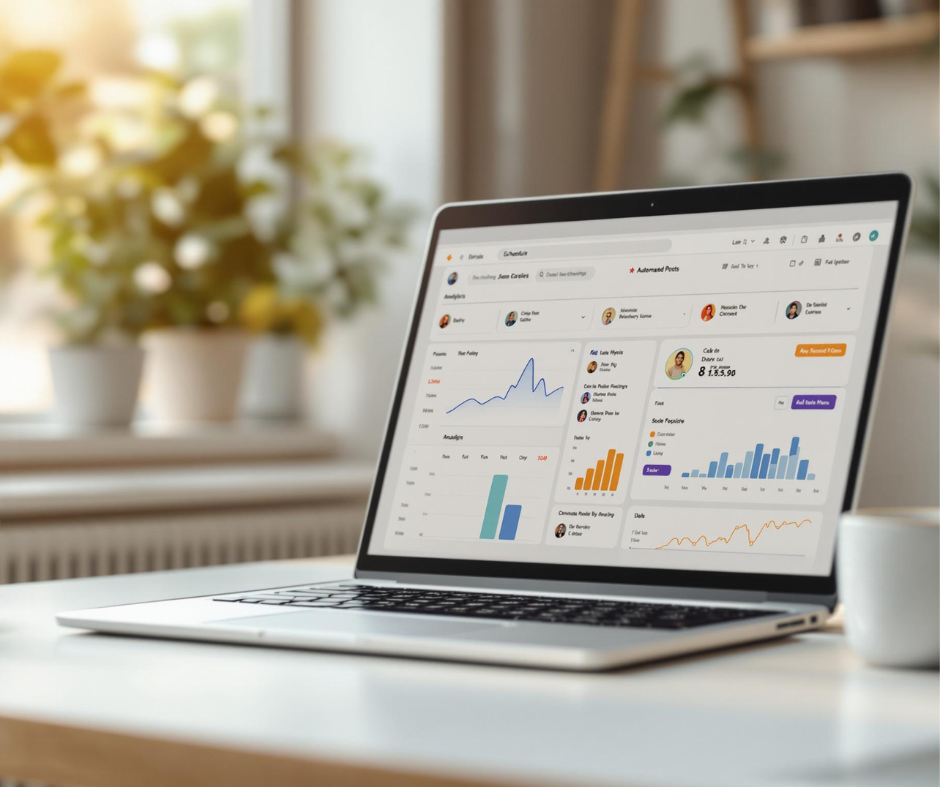
AWhitney Digital Marketing
We are the premier digital marketing solution in Tampa. Contact us today to get your free, no-obligation consultation!
All Rights Reserved | AWhitney Digital Marketing
Contact info
12212 Tattersall Park Lane, Tampa, Florida 33625
United States
